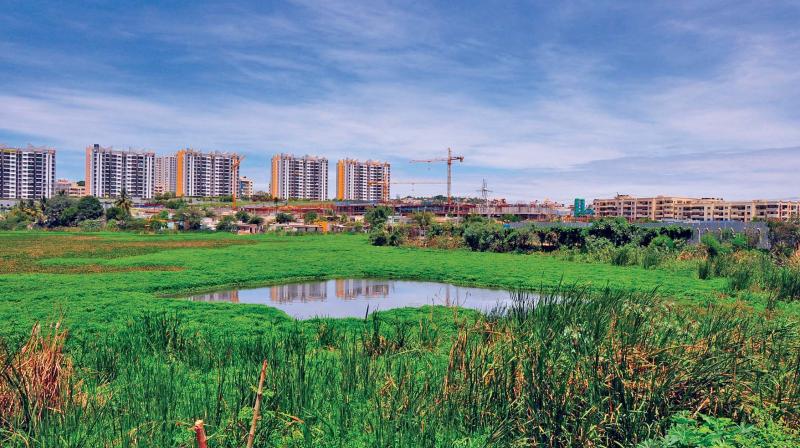Guest column: ‘Govt, parastatal agencies apathetic, KSPCB toothless’
Lakes are the life line of Bengaluru.

Lakes are the life line of Bengaluru. Kempe Gowda, the founder of Bangalore and his successors built more than a hundred lakes and tanks in the city, which are now slowly fading out from due to rapid urbanization and discharge of effluents in the water bodies.
The Karnataka Government and Bengaluru’s parastatal agencies have repeatedly demonstrated their apathy towards our city’s environment, particularly our lakes and wetlands. While preventing dumping of sewage in lakes and SWD is important, the Government must also focus on prosecuting polluters who are misusing lakes and SWDs to dump sewage and contaminate our water bodies and ground water. Let me quote a recent incident where a BWSSB jetting machine was found dumping raw sewage into a SWD. The Namma Bengaluru Foundation had filed a complaint in this regard and yet no official was prosecuted.
Under Section 25 of the Water (Prevention of Control of Pollution) Act, 1947 (‘Water Act’), persons are prohibited from making any new discharge of sewage without the permission of Karnataka State Pollution Control Board (KPSCB). In this case there is a clear violation of this provision. Further section 44 of the Water Act prescribes a specific penalty for contravention of Section 25. Therefore, Government needs to focus on prosecution of errant officials.
KSPCB is also empowered under Section 33A of the Water Act to issue directions to any officer, or authority and such recipient shall be bound to comply with such directions. In response to an RTI application by NBF in this regard the KSPCB shared the proceedings of the internal enquiry, which they conducted on January 24, 2019. The proceedings say that the Chairman of BWSSB has agreed to have the action-taken report submitted within 15 days. But NBF has not received any update even after nearly 6 months. This shows that KSPCB has either become a toothless institution or it is complicit with the corrupt bureaucrats and politicians.
In its Budget in February 2019, the Karnataka government decided to set-up three Continuous Water Quality Monitoring Stations at a total cost of Rs.9 crore at Bellandur, Agara and Varthur lakes, as per directions by the National Green Tribunal. It has also stated that it will work to prevent entry of sewage at 914 entry points with storm water drain in Bengaluru at a cost of Rs.76.55 crore. The CM has said that the Government will prioritise rejuvenation of Thippagondanahalli reservoir and establish waste water processing plants which is expected to be completed 2020. Along with rejuvenating Thippagondanahalli reservoir, the Government must also focus on prioritising the rejuvenation of Byramangala reservoir in Ramanagara district which is now a Public Health hazard to villagers living around the lake.
— Suresh N.R., Director, The Namma Bengaluru Foundation
